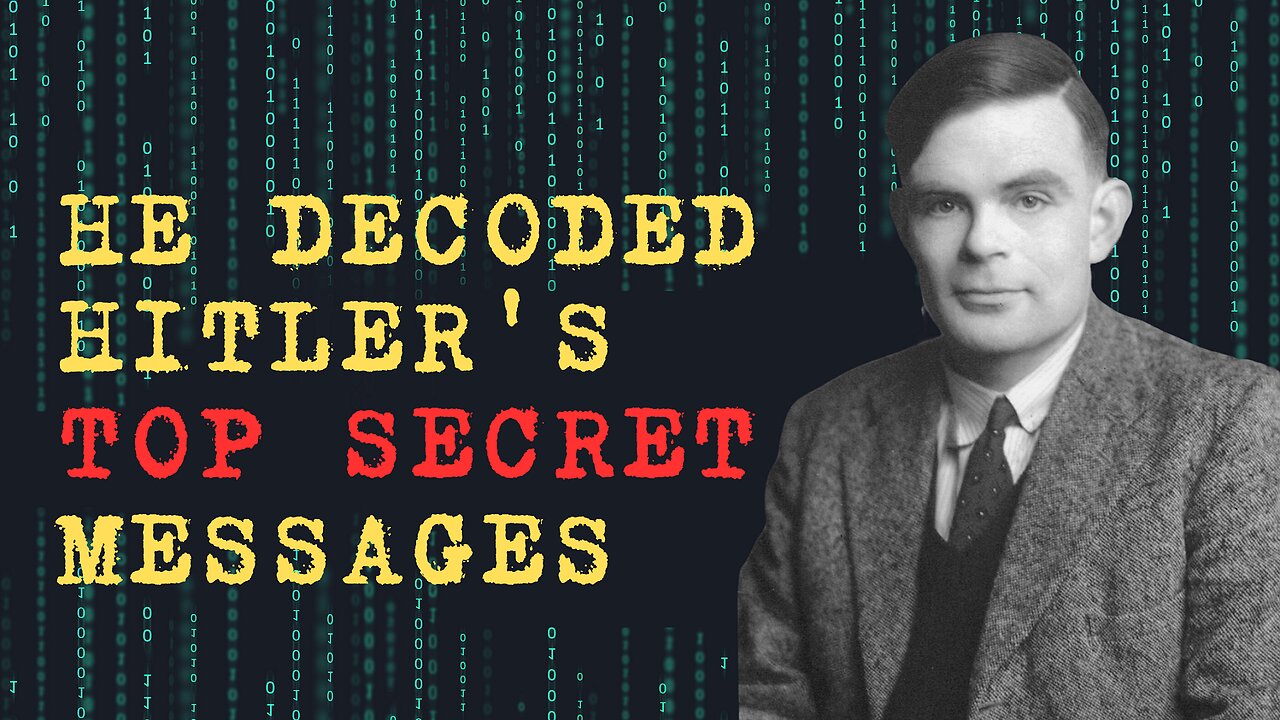Premium Only Content

The Man Who Outsmarted the Nazis: The Extraordinary Life of Alan Turing
Alan Turing was a renowned British mathematician, logician, and computer scientist. He was born on June 23, 1912, in London, England, and is widely considered the father of modern computer science and artificial intelligence.
During World War II, Turing played a vital role in breaking the Enigma code used by the Germans, which significantly aided the Allies in their war efforts. He worked at Bletchley Park, a top-secret facility in the UK, where he helped develop and use innovative techniques to decrypt and analyze encrypted German messages. Turing's work on code-breaking machines, including the development of the electromechanical device known as the Bombe, helped expedite the deciphering of Enigma-encoded messages and had a profound impact on the outcome of the war.
After the war, Turing continued his work in the emerging field of computer science. He proposed the concept of a universal computing machine, known as the Turing machine, which laid the theoretical foundation for modern computers.
Turing also made significant contributions to the field of artificial intelligence. In 1950, he published a landmark paper titled "Computing Machinery and Intelligence," in which he proposed the "Turing Test" as a measure of machine intelligence. This test evaluates a machine's ability to exhibit intelligent behavior indistinguishable from that of a human.
Despite his invaluable contributions to science and technology, Turing faced persecution due to his homosexuality, which was illegal in the UK at the time. In 1952, he was convicted of "gross indecency" and subjected to chemical castration. Tragically, Turing died by suicide on June 7, 1954, at the age of 41.
Alan Turing's work and legacy have been widely recognized and celebrated in the years since his death. His groundbreaking contributions to cryptography, computer science, and artificial intelligence have had a lasting impact on numerous fields and laid the groundwork for many of the technologies we rely on today. In 2013, Turing was posthumously pardoned by Queen Elizabeth II, and his significant achievements continue to inspire and influence generations of scientists and researchers.
-
 6:10
6:10
Guns & Gadgets 2nd Amendment News
13 hours agoIs This The Next ATF Director?
4.86K15 -
 1:30
1:30
RTT: Guns & Gear
18 hours agoI Got Nominated For the Gundie Award???
2.36K2 -
 1:04:21
1:04:21
Sarah Westall
13 hours agoDr. Robert Young’s Response to Dr. Ana Mihalcea’s Criticism: Zeolites, Sea Plasma & Professionalism
8.83K13 -
 1:03:50
1:03:50
Degenerate Plays
13 hours agoJay OBLITERATES Women And Individuals Of Age With Facts And Logic - Assassin's Creed : Part 29
2.16K -
 1:38
1:38
Producer Michael
18 hours agoWHAT WAS I THINKING?!
73K8 -
 12:07
12:07
BlackDiamondGunsandGear
13 hours ago $10.33 earnedTaser Challenge Gone Wrong - DON'T TRY THIS AT HOME!
39.2K14 -
 13:18
13:18
MTNTOUGH Fitness Lab
21 hours agoProtectors: The Bullfighter | A MTNTOUGH Original
29.2K3 -
 37:48
37:48
CarlCrusher
16 hours agoGhost Voices and Paranormal Activity at Magic Mesa
26.8K2 -
 1:05:44
1:05:44
PMG
15 hours ago $4.06 earned"United Healthcare CEO Shooter Has Been ARRESTED!! Here’s What We Know…"
15.7K5 -
 5:56:37
5:56:37
Akademiks
13 hours agoJay Z is getting DESPERATE. Begs Judge to Dismiss CASE EXPEDITIOUSLY!! United Healthcare Ceo / LUIGI
191K33